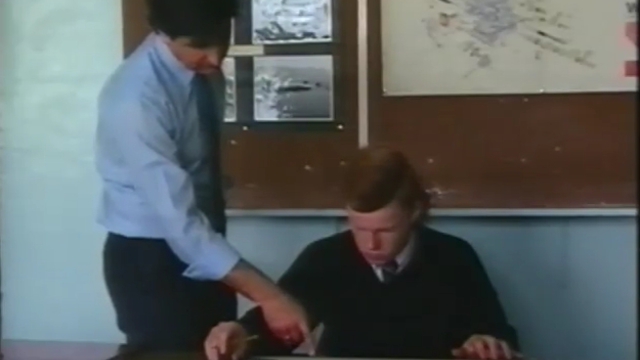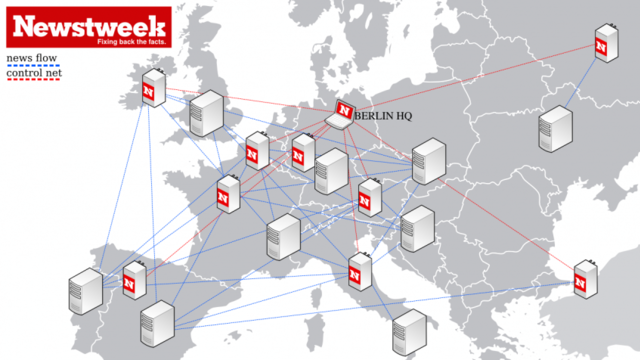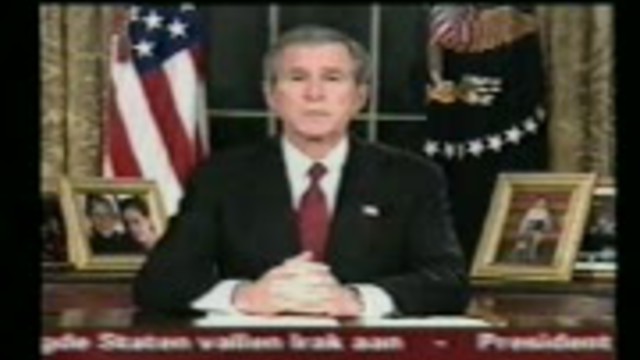Search results for 'independent+media'
make world festival 1
BORDER="Ø" LOCATION="YES"
Dictionary of War - New York Edition
On Saturday, September 26th 2009, 11 am, the "Cities and the New Wars" conference organized by Saskia Sassen will host the 9th edition of the Dictionary of War.
ReadDictionary of War - Berlin Edition
A to Z: The Precarious Alphabet of War
War, in the broadest sense, is a battle about the power to define and definitions, that are not carried out at the center of words but at their very margins. But what can words do, as soon as the state of war has become a rule and a normality worldwide?
Dictionary of War - Munich Edition
The second edition of DICTIONARY OF WAR, July 22 and 23 in Muffathalle Munich
ReadDeeDee Halleck
DeeDee Halleck is a media activist and co-founder of Paper Tiger Television and the Deep Dish Satellite Network, the first grass roots community television network. She is Professor Emerita in the Department of Communication at the University of California at San Diego. Her filmography includes films like Children Make Movies( 1961), or Mural on Our Street, which was nominated for Academy Award in 1965. She has led media workshops with elementary school children, reform school youth and migrant farmers.
ReadHolding Out for Un-alienated Communication
"In August 1996, we called for the creation of a network of independent media, a network of information. We mean a network to resist the power of the lie that sells us this war that we call the Fourth World War. We need this network not only as a tool for our social movements, but for our lives: this is a project of life, of humanity, humanity which has a right to critical and truthful information."
These were the words of Subcomandante Marcos, speaking in 1997 from Chiapas in the midst of the Zapatistas' guerrilla information war against the Mexican state and the neocolonialism reflected in NAFTA. Marcos's powerful statement and Zapatista stories of struggle were circulated from the jungle of Chiapas on mailing lists, listservs, and websites, capturing the imagination of activists around the world and galvanizing a wave of new grassroots media projects. Perhaps no project more purely embodied this response than the Indymedia network, which was launched in November 1999 at the Seattle protests against the World Trade Organization (WTO) meetings and quickly grew into a global network of news websites.
Next 5 Minutes 4
Next 5 Minutes is a festival that brings together media, art and politics. Next 5 Minutes revolves around the notion of tactical media, the fusion of art, politics and media. The festival is organised irregularly, when the urgency is felt to bring a new edition of the festival together.
ReadGlobal Uprisings
Global Uprisings is an independent news site and video series dedicated to showing responses to the economic crisis and authoritarianism. Since 2011, Brandon Jourdan and Marianne Maeckelbergh have been travelling, researching, and making documentary films.
Their short films detail social movements in Bosnia and Herzegovina, Egypt, Greece, Portugal, Spain, Turkey, the UK, and the US. Their films cover strikes and demonstrations in the UK, the large-scale housing occupations and street mobilizations in Spain, the various general strikes, protests, and factory occupations in Greece, the revolution in Egypt, the Gezi Park uprising in Turkey, the 2014 social explosion in Bosnia and Herzegovina, the revolt against austerity in Portugal, and the occupy movement in the United States.
Dictionary of War - Novi Sad Edition
After a one year break the DICTIONARY OF WAR continues with a fifth edition on January 25th and 26th, 2008 in Novi Sad, Serbia. Again 25 new concepts on the topic of war will be presented in alphabetical order by artists, theorists, filmmakers, scientists, researchers. Loosely based on the slogan: "At least, when we create concepts, we are doing something" DICTIONARY OF WAR is a collaborative platform for creating concepts.
ReadDictionary of War - Frankfurt Edition
"At least, when we create concepts, we are doing something"
ReadTactical Media After 9-11
It is tempting to portray '9-11' as a turning point. Gore Vidal warns
that, since September 11, the US is in danger of turning into a "seedy
imperial state." Make war, not politics. The new patriotism requires: "Disruption, including obstructing the view or hearing of others, will
not be tolerated." The list of measures to restrict civil liberties,
freedom of speech and privacy, or what?s left of it, doesn?t stop. A
recent conference in Perth concluded that post-September 11 reporting
adds to divisions and stereotypes. "The media's failure to provide more
perspectives to news consumers and ask critical questions is fuelling a
culture of fear and blame around the world, experts say."
Everybody will be TV
Programming produced by any big transnational TV network (CNN, BBC, etc.) is, from the standpoint of an Internet user, similar to an Aggregator site distributing video material. It may also function as a portal providing a variety of material of interest to the viewer. Similarities abound - sections of a transnational TV network correspond to parts of an aggregate site: a program schedule is analogous to a web site index, news programs function as general information about the portal's community, shows represent particular web pages or sections on the portal. Most importantly, both TV network and a Web portal try to fulfill the basic media mission: to define its own reality and broadcast it that reality to potential followers - TV viewers or Internet users.
ReadDark Markets
Dark Markets is a two day strategic conference that looked into the state of the art of media politics, information technologies, and theories of democracy. A variety of international speakers inquired into strategies of oppositional movements and discussed the role of new media.
ReadStreaming Networks
We've had the camcorder revolution. It made making videoprograms
cheaper. Audio-equipment is affordable, so radiomaking is possible for
a large amount of people too. So for a long time already the masses are
potential mediaproducers. There were only minor successes in accessing
the broadcast channels both legally and illegally. But the efficient
one-to-many distribution system (radio and tv) are chocked, regulated,
hard to get access to. The Internet having the capacity for streaming
media seems to promise new possibilities. Boundless access, for anyone
making radio, and maybe in the near future TV. Some are pessimistic,
and see these channels soon closed and regulated as well. What will
this streaming media look like and who will be streaming?





